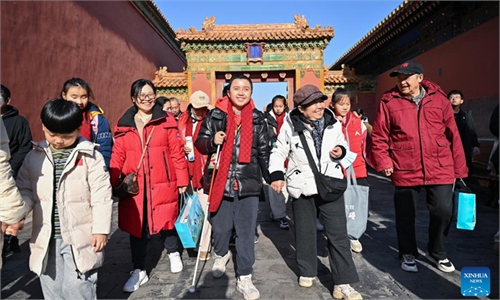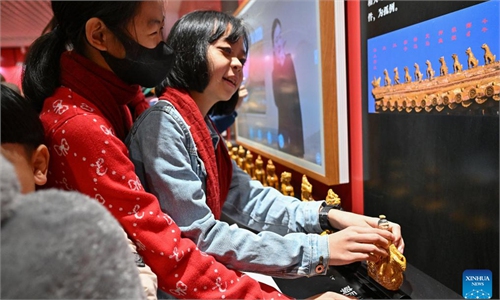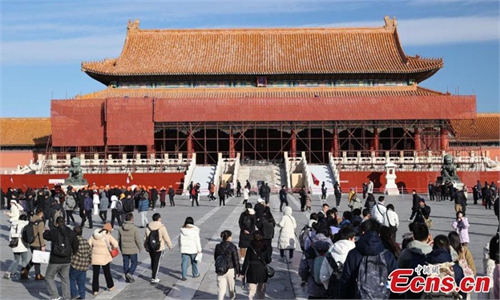ARTS / ART
Palace Museum northern branch expected to be completed by October
New cultural landmark
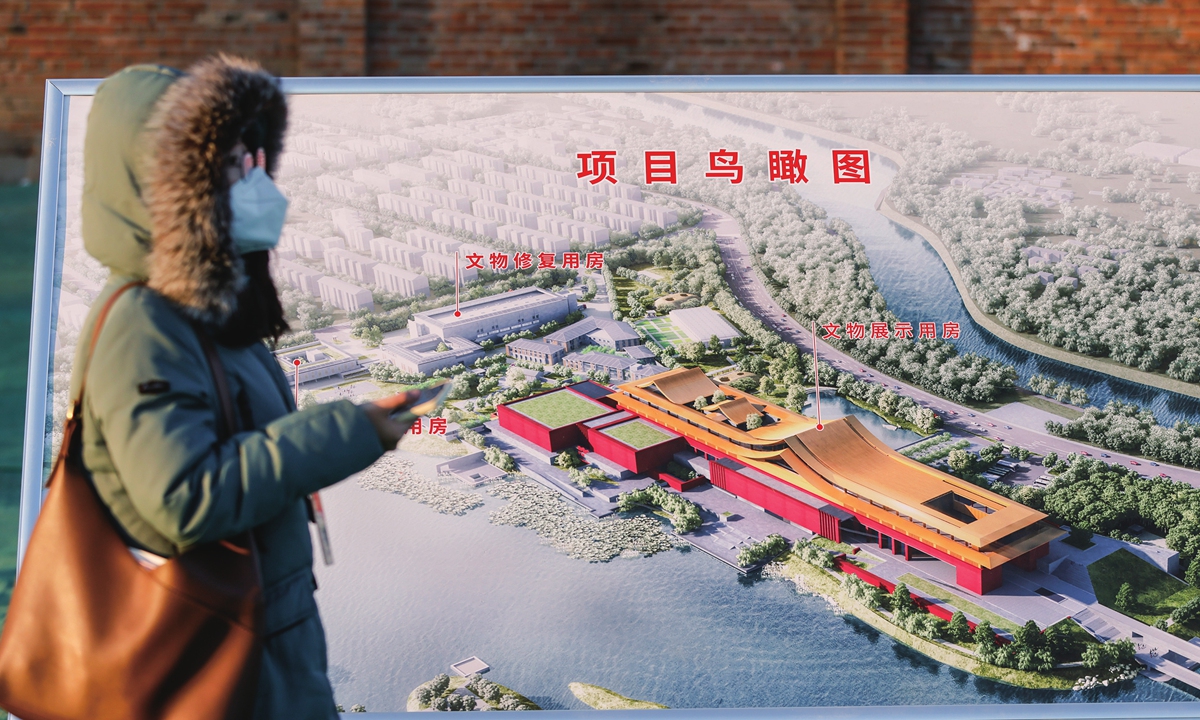
A visitor walks past an aerial design photo of the northern branch of the Palace Museum project in Beijing. Photos: VCG
Construction of the northern branch of the Palace Museum, a major extension of Beijing's most iconic museum facility, is one of the main cultural projects in Beijing in 2025, as it is expected to be completed by October.The new branch, covering over 100,000 square meters, is now at a stage in which its main structure is going through a construction phase, with main buildings within the new branch gradually taking shape.
The exterior of the branch's buildings is adorned with red walls, golden tiles and double-eaved roofs to match the Palace Museum's architectural aesthetics.
Once completed, the northern extension will provide an expanded space for the Palace Museum's cultural relic restoration projects.
According to Du Haijiang, deputy director of the Palace Museum, thousands of cultural relics will be repaired here once it is built.
Also, special cultural relics with stringent requirements for their exhibition environment such as calligraphic works, textiles and paintings, will undergo much better restoration in the new branch.
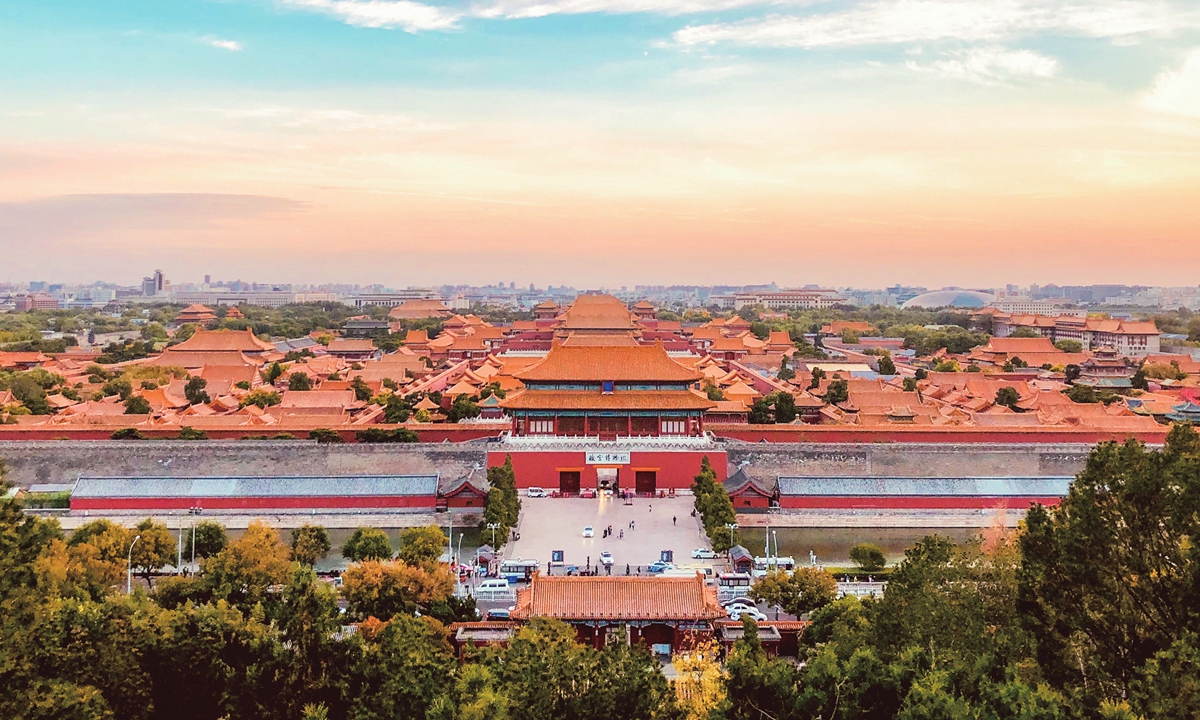
A general view of the Palace Museum in Beijing in December 2024
The Palace Museum currently houses over 1.86 million cultural relics.To better preserve such relics, pioneering building techniques are being used for the new northern branch, with a focus on stability.
The branch's building has a solid and stable appearance, and more than 300 seismic isolation components will be installed in the later stages, achieving multi-dimensional and multi-point composite seismic reduction effects.
Modern high-tech materials will also be used in the construction.
For example, the concrete used in the buildings of the branch incorporates biomimetic self-healing technology.
When cracks smaller than 0.6 millimeters form, this advanced concrete will be able to "repair" itself, greatly enhancing the longevity of the structures.
"The innovative aluminum alloy roofing maintains the traditional architectural style while ensuring that the structures remain visually appealing for many years," Li Yun, a national first-class registered structural engineer, told the Global Times.
Restoration of relics is not the branch's sole goal.
Once completed, the new facility will feature 12 exhibition halls built with high-tech designs, covering approximately 35,000 square meters.
Between 20,000 and 30,000 of the Palace Museum's cultural relics will be displayed at the new site every year.
